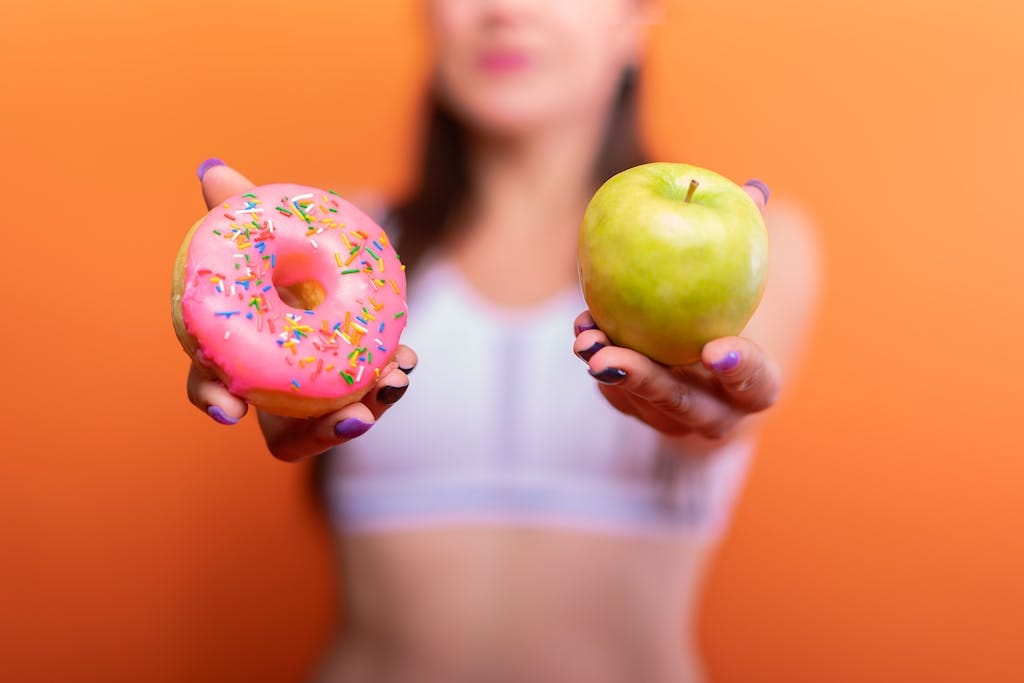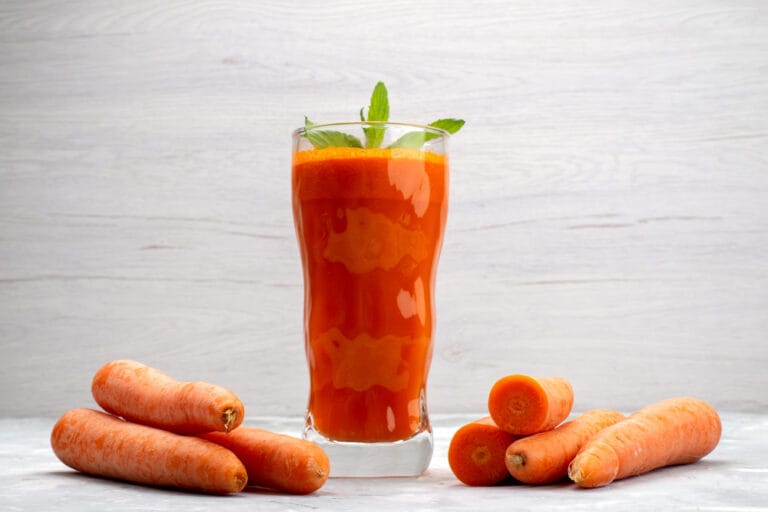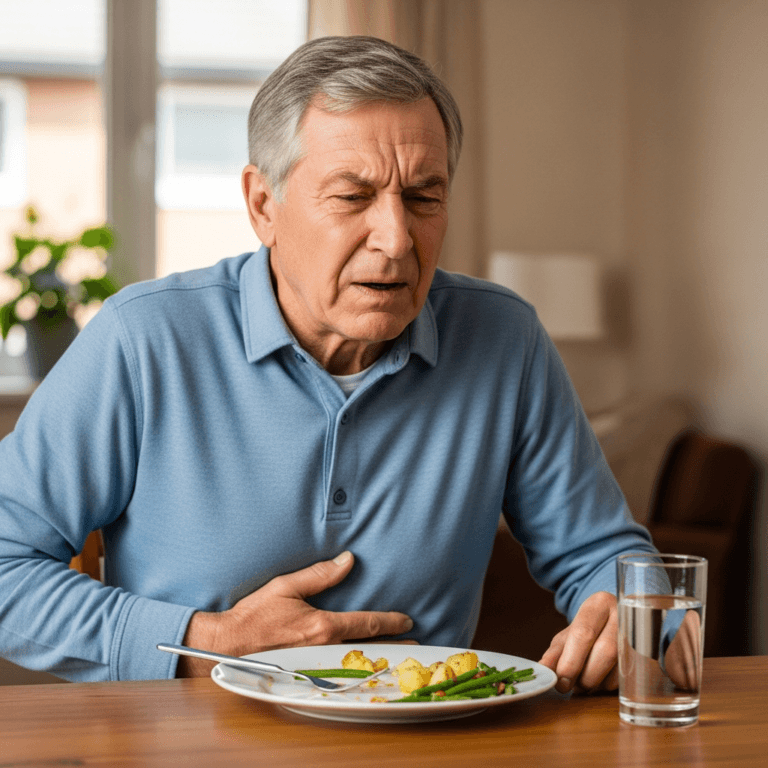FREE SHIPPING OVER $50
Dietitian’s Urgent Warning: 7 Inflammatory Foods Secretly Fueling Your Visceral Fat (Cut These NOW!)
You might be working out, trying to eat healthier, and doing all the “right” things. But what if there are silent enemies lurking in your diet, secretly fueling your visceral fat – that dangerous, deep belly fat that wraps around your organs? This isn’t just about how your clothes fit; it’s about a hidden health risk that many people don’t even know they’re accumulating.
We’ve consulted with leading dietitians to pinpoint the 7 worst inflammatory foods that are major culprits in this stealth attack on your health. These aren’t always the obvious villains, and some might even surprise you. But the good news? Once you know what they are, you can cut these now! and start to deflate that dangerous visceral fat, protecting your health and reclaiming your vitality.
Dietitian’s Urgent Warning: 7 Inflammatory Foods Secretly Fueling Your Visceral Fat

Here are the 7 “worst” inflammatory foods that dietitians say you should cut out to combat visceral fat. Some of these might be staples in your kitchen, making this urgent warning even more critical.
1. Margarine and Other Trans Fats
- Why it’s a culprit: You might have heard of trans fats (often listed as “partially hydrogenated oils”). They were once widely used in processed foods, including many margarines, baked goods, and fried foods. While regulations have reduced their presence, they can still lurk in some items. They are notorious for being highly inflammatory.
- How it fuels visceral fat: Trans fats are uniquely damaging. They significantly increase systemic inflammation, elevate “bad” LDL cholesterol, and have been directly linked to increased accumulation of visceral fat in studies. They disrupt cellular function and promote insulin resistance.
- Cut These NOW!: Check labels. Opt for real butter (in moderation) or healthy oils like olive oil, avocado oil, or coconut oil instead of margarine and highly processed spreads. Avoid baked goods and fried foods made with these oils.
2. Refined Sugars (Especially Fructose in Sweetened Drinks)
- Why it’s a culprit: Sugary drinks (soda, sweetened teas, energy drinks), candies, pastries, and many processed snacks are loaded with refined sugars, including high-fructose corn syrup. These are a primary source of inflammation.
- How it fuels visceral fat: Excessive intake of refined sugars, particularly fructose, can lead to fat accumulation in the liver and promote insulin resistance. Your body then readily converts this excess sugar into fat, much of which can end up as visceral fat. The resulting blood sugar spikes and crashes also fuel inflammation.
- Cut These NOW!: Eliminate sugary drinks. Reduce intake of processed snacks, candies, and desserts. Read labels for hidden sugars (dextrose, sucrose, corn syrup). Opt for natural sweetness from whole fruits.
3. Highly Processed Seed Oils (Soybean, Corn, Sunflower, Safflower)
- Why it’s a culprit: These vegetable oils, often found in processed foods, fried items, and salad dressings, are high in omega-6 fatty acids. While some omega-6 is essential, an imbalanced ratio to omega-3 fatty acids (which are anti-inflammatory) can promote chronic inflammation.
- How it fuels visceral fat: The overconsumption of these oils contributes to a pro-inflammatory state in the body. This systemic inflammation can interfere with hormone signaling and contribute to fat storage, particularly around the organs.
- Cut These NOW!: Minimize processed foods. Cook with healthier alternatives like olive oil, avocado oil, or coconut oil. Make your own salad dressings.
4. Refined Grains (White Bread, Pasta, Rice)
- Why it’s a culprit: Unlike whole grains, refined grains have had their bran and germ removed, stripping them of fiber, vitamins, and minerals. What’s left is quickly digested carbohydrates that behave much like sugar in your body.
- How it fuels visceral fat: Rapid digestion of refined grains leads to sharp blood sugar spikes and subsequent insulin surges. This chronic high insulin level can drive fat storage, particularly in the visceral area, and contribute to inflammation and insulin resistance.
- Cut These NOW!: Swap white bread, pasta, and rice for their whole-grain counterparts (whole wheat bread, brown rice, quinoa, oats). Opt for vegetables as a primary carbohydrate source.
5. Processed Meats (Bacon, Sausages, Deli Meats)
- Why it’s a culprit: These meats are often high in saturated fat, sodium, and various additives, including nitrates and nitrites, which can promote inflammation in the body.
- How it fuels visceral fat: The inflammatory compounds, coupled with high saturated fat content, can contribute to a pro-inflammatory environment and metabolic dysfunction, making it easier for your body to accumulate visceral fat.
- Cut These NOW!: Reduce your intake of bacon, sausages, hot dogs, and most deli meats. Choose leaner, unprocessed protein sources like fresh chicken breast, fish, eggs, or legumes.
6. Deep-Fried Foods
- Why it’s a culprit: This one might seem obvious, but it’s worth reiterating. Deep-frying foods, especially in unhealthy oils (often the processed seed oils mentioned above), creates compounds called advanced glycation end products (AGEs), which are highly inflammatory.
- How it fuels visceral fat: The combination of unhealthy fats, high temperatures, and potential AGE formation creates a powerful inflammatory cocktail that promotes systemic inflammation and directly contributes to visceral fat accumulation and metabolic issues.
- Cut These NOW!: Limit or eliminate deep-fried foods from your diet. Opt for baking, grilling, roasting, or air frying instead.
7. Artificial Sweeteners (In Excessive Amounts)
- Why it’s a culprit: While marketed as “sugar-free,” growing research suggests that some artificial sweeteners can negatively impact your gut microbiome. An unhealthy gut microbiome is strongly linked to inflammation and metabolic dysfunction.
- How it fuels visceral fat: Disruptions in gut bacteria can lead to increased gut permeability (leaky gut), allowing inflammatory compounds to enter the bloodstream. This systemic inflammation can then contribute to insulin resistance and visceral fat accumulation.
- Cut These NOW!: Reduce reliance on artificially sweetened beverages and foods. Opt for plain water, unsweetened tea, or naturally flavored sparkling water.
Cut These NOW! Your Path to Deflating Visceral Fat & Reclaiming Health
The foods you choose directly impact your body’s inflammatory state and its tendency to store dangerous visceral fat. It’s not just about calories; it’s about the biological signals your food sends.
By actively choosing to cut these 7 inflammatory foods from your diet, you are taking powerful steps to:
- Reduce Systemic Inflammation: Calming the internal “fire” in your body.
- Improve Insulin Sensitivity: Helping your body use glucose more efficiently and store less fat.
- Promote Fat Burning: Shifting your metabolism towards burning stored fat, especially visceral fat.
- Lower Disease Risk: Significantly reducing your risk for heart disease, diabetes, and other chronic conditions.
- Boost Energy & Well-being: Feeling better overall as your body functions optimally.
Making these changes might feel challenging at first, as many of these foods are common. But even gradual reduction can yield significant benefits. Focus on replacing these inflammatory foods with whole, unprocessed options: lean proteins, plenty of colorful vegetables, fruits, healthy fats, and whole grains.
Related Articles
- Ozempic-Level Results? Unlock Your Body’s Own Fat-Burning Hormones By Eating Smarter (Science-Backed!)
- The Forbidden Nighttime Bites: 6 Foods Nutritionists Never Eat Before Bed (Sleep Better, Lose Weight!)
- Bloat & Fatigue BE GONE! This “Instant Reset” Detox Drink Flattens Your Belly & Boosts Energy FAST
- Unbelievable: 60-Year-Old Sheds 20%+ Body Fat! His 3 “Ageless Body” Secrets Revealed (You Can Do This!)
- Seniors’ “Youth Elixir”: 10 Irresistible Smoothies That MELT Belly Fat & Revive Digestion (Secret Recipes!)







